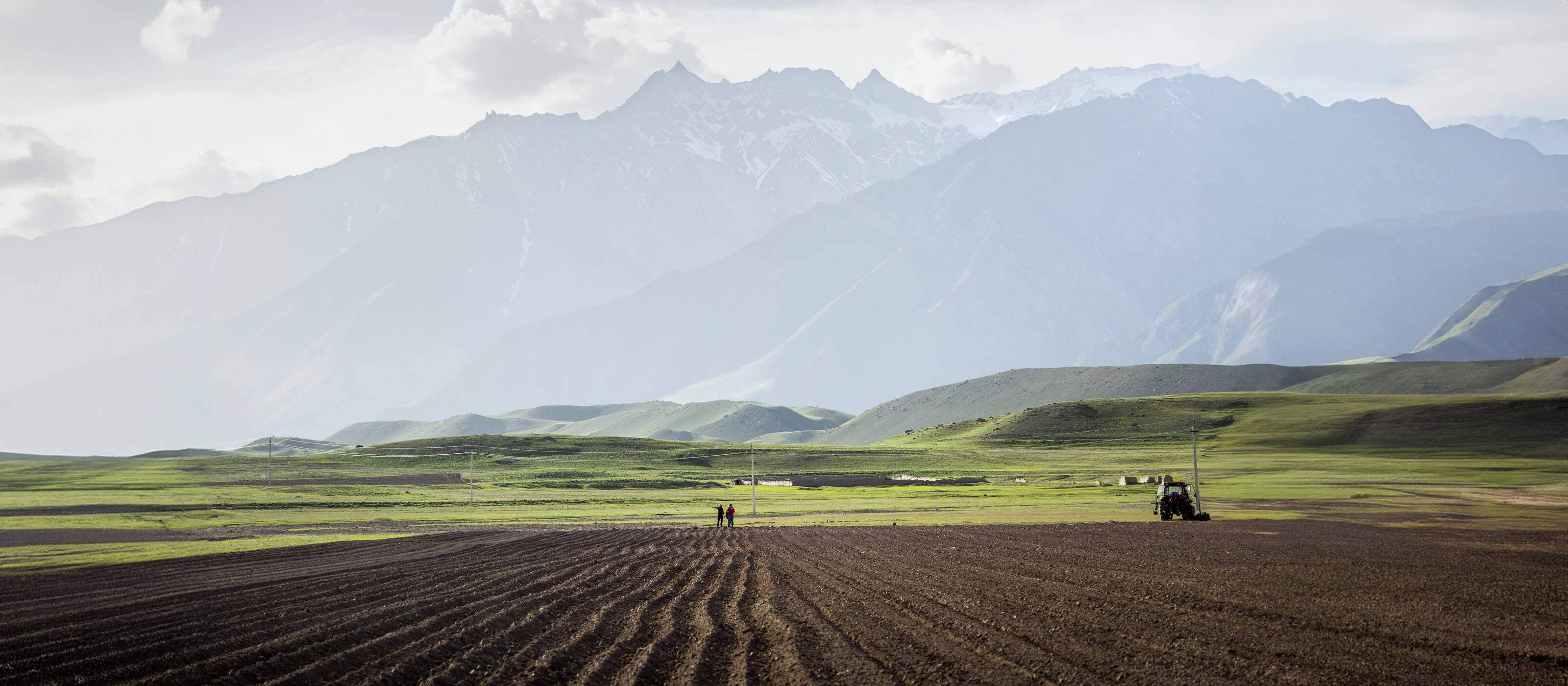

Tajikistan adapts to a changing climate
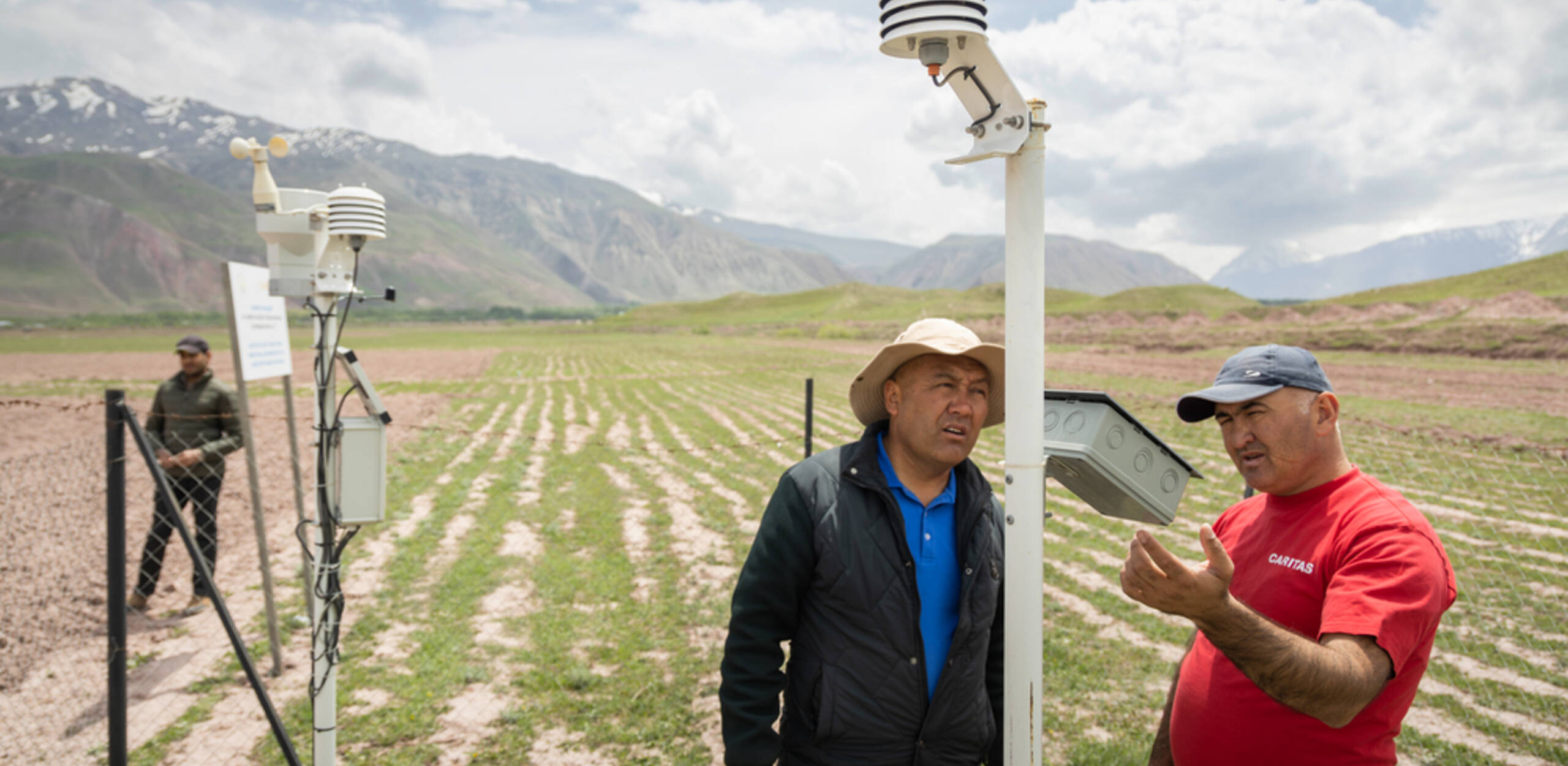
Climate change strongly affects Tajikistan. Two thirds of the population make their living from agriculture, which makes adapting to the new climatic conditions essential. Caritas supports the farming communities with innovative methods for weather forecasting and climate measurement to safeguard their harvest.
Climate change is having severe consequences for people and nature in Tajikistan. Temperatures fluctuate more and more, the summers are becoming drier, and precipitation occurs more frequently in the form of torrential rainfall. Farmers in the mountain villages suffer in particular from such extreme weather conditions.
Caritas Switzerland is supporting these farmers to adapt to the changing conditions with innovative methods: for the first time, farmers now have access to reliable weather forecasts and thus know how they can best cultivate their crops. This enables them to better adapt their farming practices to the climate.
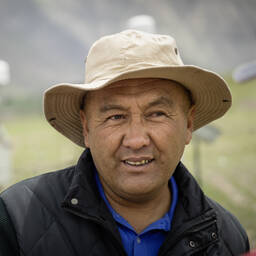
«In the past, I was a simple farmer, like everyone here. We mainly planted potatoes. But the soils have become drier and yields have fallen sharply.»Ilhomiddin Jamshedov (43)farmer
Ilhomiddin Jamshedov (43) lives with his family in the village of Shirinob on the border to Kyrgyzistan, around 2’000 metres above sea level.
Help on the way
0
peopleworldwide learnt to better adapt to climate change with Caritas Switzerland
(2023)
0
peoplebenefited from the agricultural project in Tajikistan
(2023)
0
weather stationswere installed by Caritas Switzerland throughout the country since spring 2021
(31.12.2023)
Because of the changed weather patterns, it became increasingly difficult to plan the sowing, harvest, and other work on the fields. Moreover, the farmers had no access to a weather forecast. Therefore, Caritas Switzerland has installed 153 simple weather stations throughout the country since spring 2021. These supply valuable data on air temperature, air pressure, air humidity and soil temperature and enable a reliable weather forecast.
These measurements form the basis of the Weather-Water-Climate-Services (WWCS). Through these services, the farming communities receive recommendations on sowing, irrigation, and harvest by SMS. They are also warned about extreme temperatures and natural hazards. The first results achieved with this data are promising – harvest yields have improved significantly. Moreover, the farmers participating in the project are passing on their knowledge to people throughout the wider region.
Impressions of farming families in Tajikistan
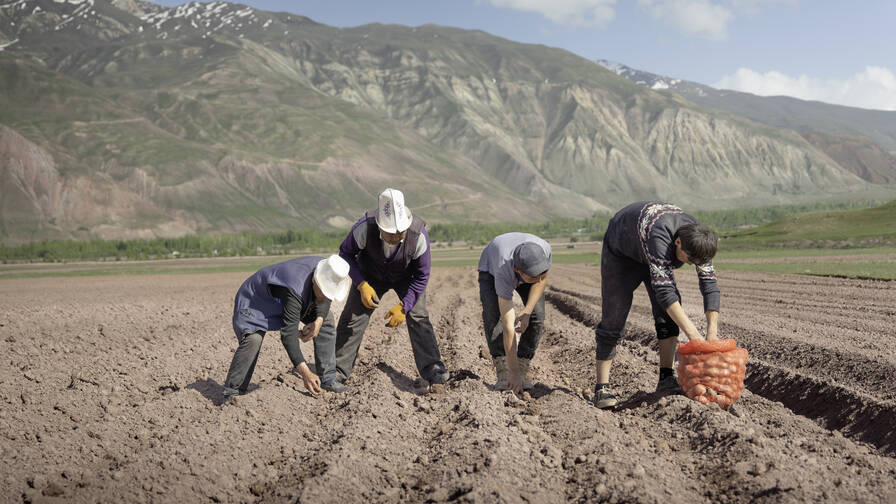
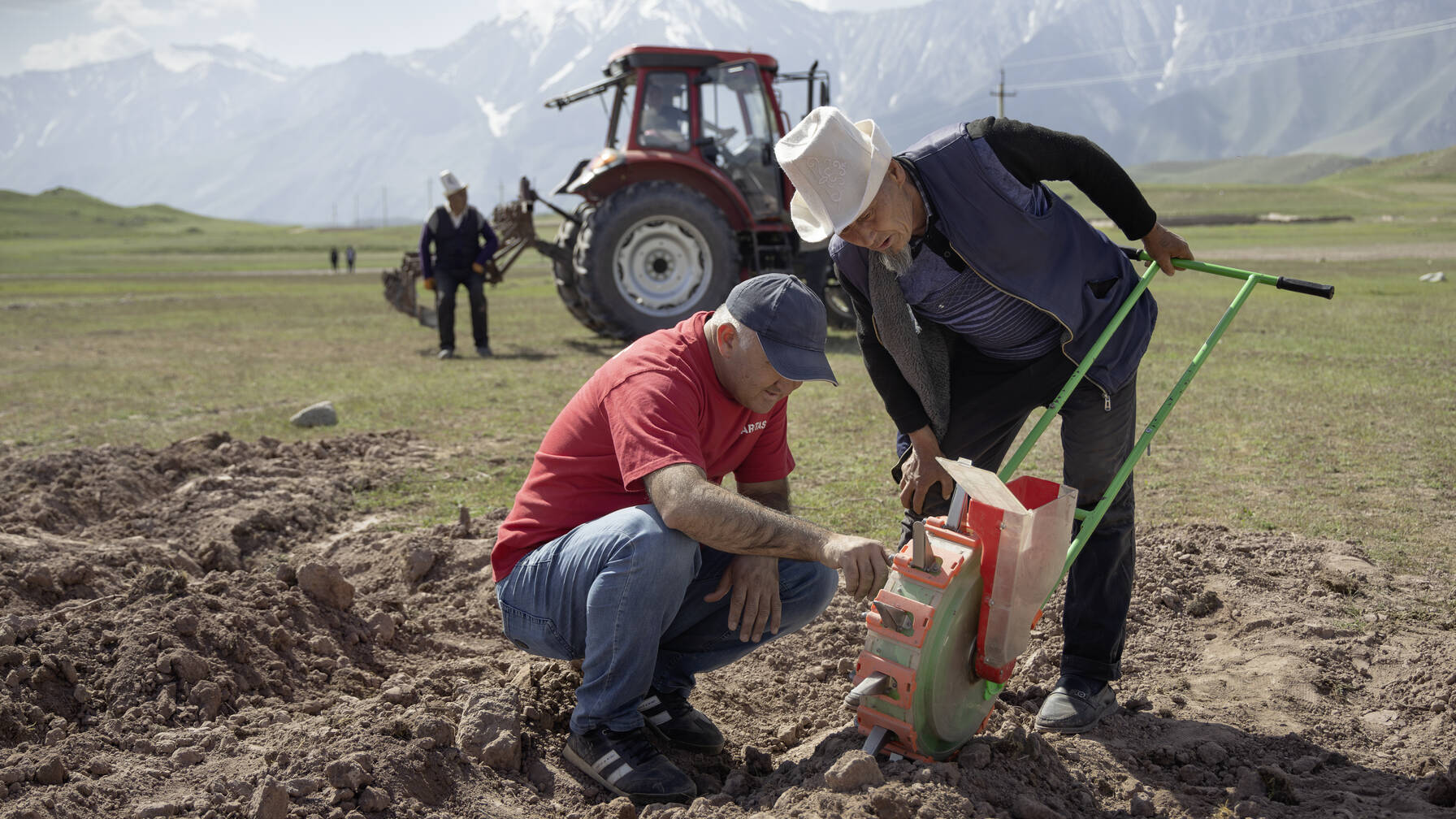
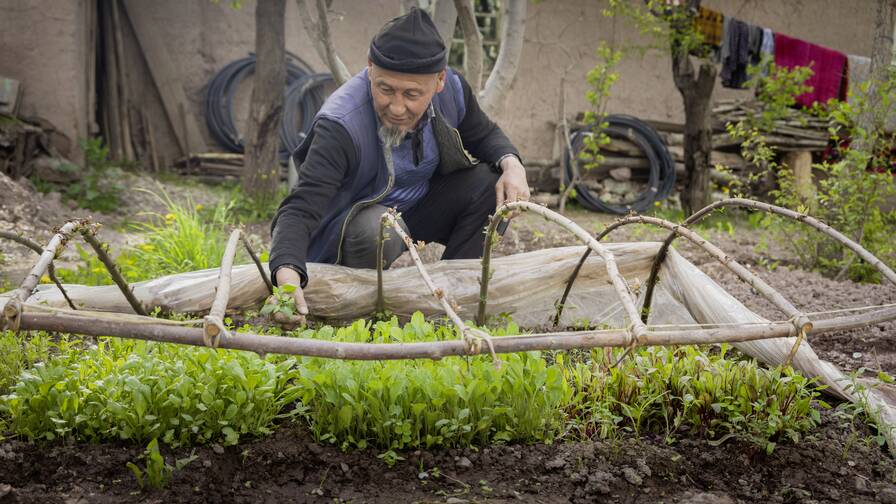
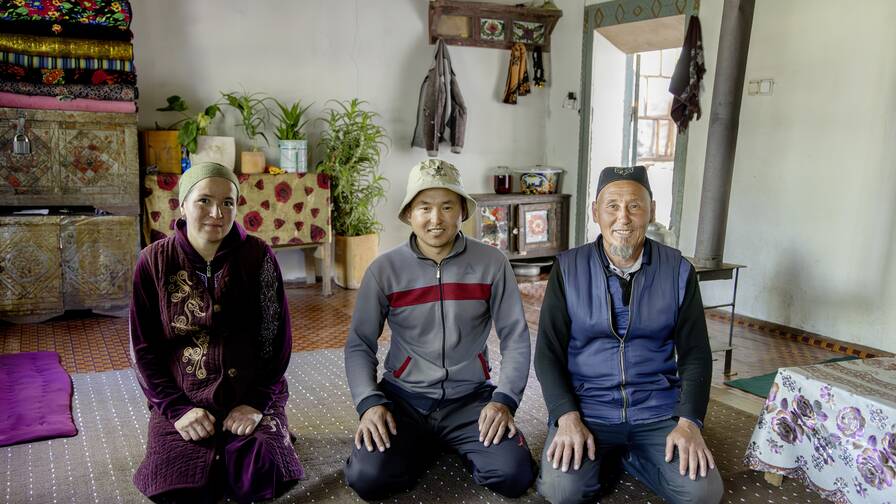
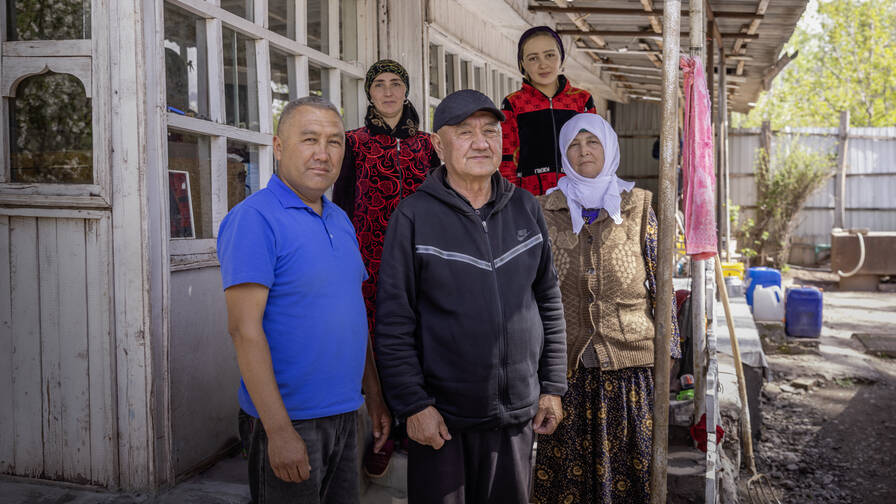
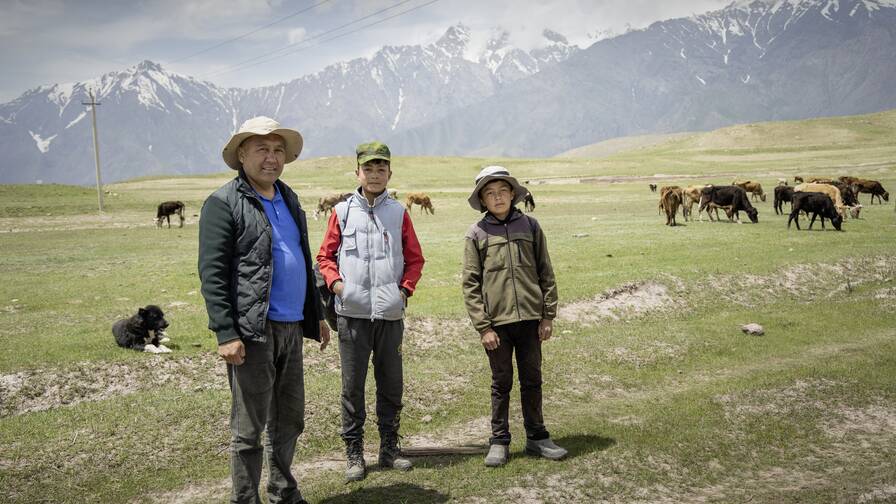
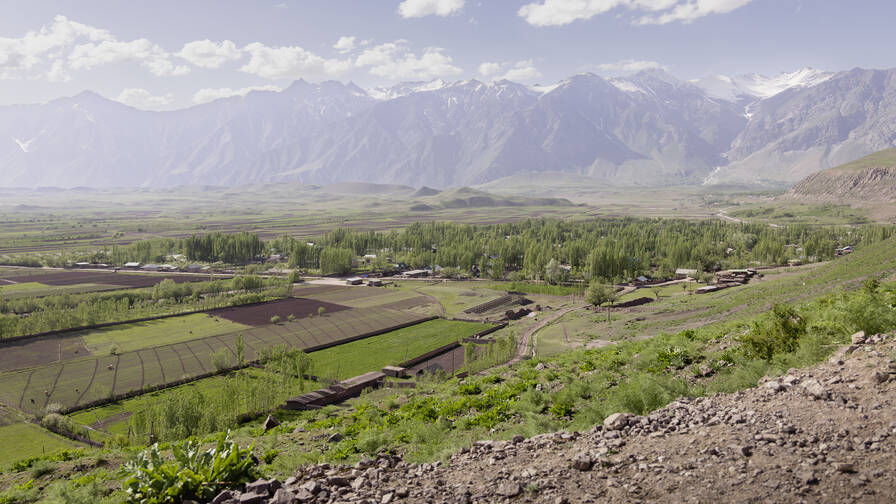
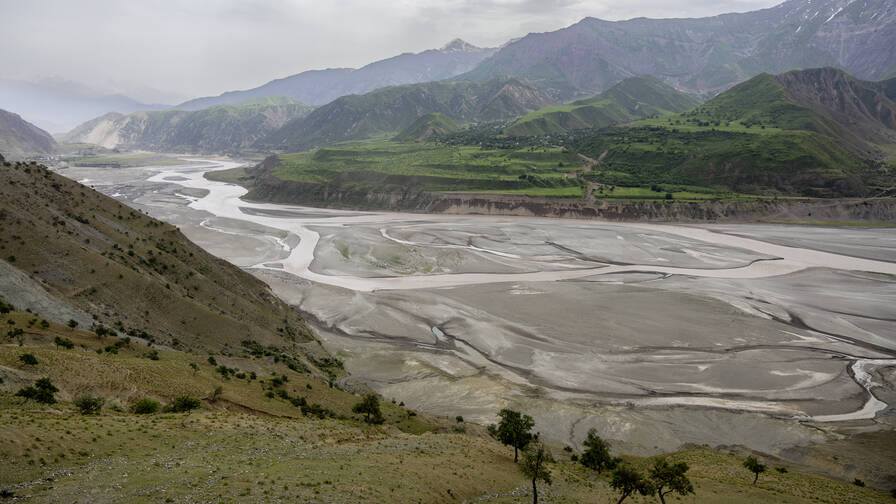
















Higher harvests with less water
Shokirjon Shamirov (60) is also a farmer in Shirinob. His situation underlines how important precise weather data are. «Our main worry here is the water supply», he says. There is never enough water for everyone, and it has become more difficult to cultivate the soil. Traditional farming methods used by Shamirov and other farmers in the Rasht Valley are used to are no longer appropriate in these circumstances. Together with Caritas, Shamirov has broken new ground since the spring of 2021.
Shamirov is one of 25 farmers who cultivate different Caritas fields. On these plots, new vegetable varieties such as mung beans and chickpeas are sown, different irrigation systems are tested, and cropping methods optimised. Here too, the weather data of the WWCS is vital. Shokirjon Shamirov says with a smile:
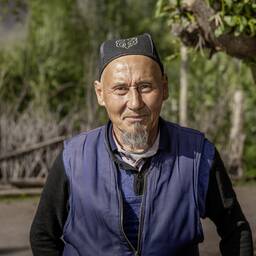
«Thanks to the new knowledge, we can achieve a better harvest with less water, on the test fields and in our own gardens»Shokirjon Shamirov (60)farmer
Bakhtiyor Ashurov, agricultural engineer at Caritas Switzerland, is closely following developments in the upper Rasht Valley closely. He meets regularly with the farmers and exchanges advise with them. Overall, 8’298 people in the region were supported by the project in 2023.
© Reto Albertalli
Header image: Farmers in Tajikistan depend on the weather. Caritas supports them in working with the weather and adapting to climate change. © Reto Albertalli